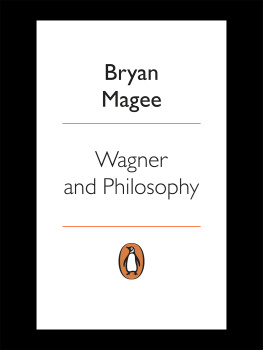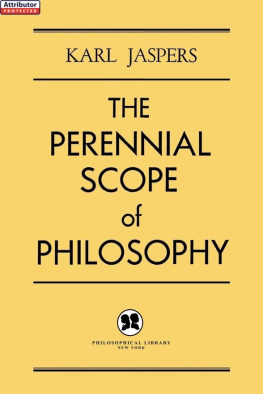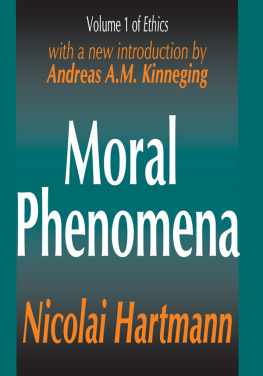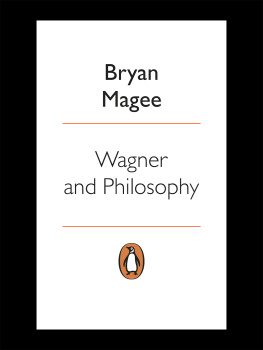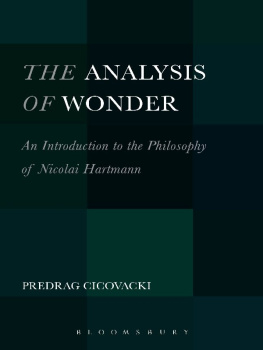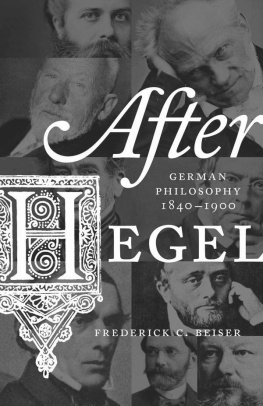Eduard Von Hartmann - Philosophy of the Unconscious (International Library of Philosophy)
Here you can read online Eduard Von Hartmann - Philosophy of the Unconscious (International Library of Philosophy) full text of the book (entire story) in english for free. Download pdf and epub, get meaning, cover and reviews about this ebook. year: 2014, publisher: Taylor and Francis, genre: Science. Description of the work, (preface) as well as reviews are available. Best literature library LitArk.com created for fans of good reading and offers a wide selection of genres:
Romance novel
Science fiction
Adventure
Detective
Science
History
Home and family
Prose
Art
Politics
Computer
Non-fiction
Religion
Business
Children
Humor
Choose a favorite category and find really read worthwhile books. Enjoy immersion in the world of imagination, feel the emotions of the characters or learn something new for yourself, make an fascinating discovery.

- Book:Philosophy of the Unconscious (International Library of Philosophy)
- Author:
- Publisher:Taylor and Francis
- Genre:
- Year:2014
- Rating:5 / 5
- Favourites:Add to favourites
- Your mark:
- 100
- 1
- 2
- 3
- 4
- 5
Philosophy of the Unconscious (International Library of Philosophy): summary, description and annotation
We offer to read an annotation, description, summary or preface (depends on what the author of the book "Philosophy of the Unconscious (International Library of Philosophy)" wrote himself). If you haven't found the necessary information about the book — write in the comments, we will try to find it.
Philosophy of the Unconscious (International Library of Philosophy) — read online for free the complete book (whole text) full work
Below is the text of the book, divided by pages. System saving the place of the last page read, allows you to conveniently read the book "Philosophy of the Unconscious (International Library of Philosophy)" online for free, without having to search again every time where you left off. Put a bookmark, and you can go to the page where you finished reading at any time.
Font size:
Interval:
Bookmark:
The International Library of Philosophy
PHILOSOPHY OF THE UNCONSCIOUS

Founded by C. K. Ogden
PHILOSOPHY OF THE UNCONSCIOUS
Speculative Results according to the Inductive Method of Physical Science
EDUARD VON HARTMANN
Preface by C K Ogden

First published in 1931 by
Routledge, Trench, Trubner & Co Ltd
Published 2014 by Routledge
2 Park Square, Milton Park, Abingdon, Oxon OX14 4RN
711 Third Avenue, New York, NY, 10017, USA
Routledge is an imprint of the Taylor & Francis Group, an informa business
1931 Eduard von Hartmann, Translated by William Chatterton Coupland
All rights reserved. No part of this book may be reprinted or reproduced or utilized in any form or by any electronic, mechanical, or other means, now known or hereafter invented, including photocopying and recording, or in any information storage or retrieval system, without permission in writing from the publishers.
The publishers have made every effort to contact authors/copyright holders of the works reprinted in the International Library of Philosophy. This has not been possible in every case, however, and we would welcome correspondence from those individuals/companies we have been unable to trace.
These reprints are taken from original copies of each book. In many cases the condition of these originals is not perfect. The publisher has gone to great lengths to ensure the quality of these reprints, but wishes to point out that certain characteristics of the original copies will, of necessity, be apparent in reprints thereof.
British Library Cataloguing in Publication Data
A CIP catalogue record for this book is available from the British Library
ISBN 13: 978-0-415-22556-4 (hbk)
ISBN 13: 978-0-415-61386-6 (pbk)
Authorized Translation by
WILLIAM CHATTERTON COUPLAND
M.A., B.SC.

EDUARD VON HARTMANN
CONTENTS
I |
. |

THE inclusion of The Philosophy of the Unconscious in the International Library of Psychology is justified on many grounds. The English translation has been out of print for some years, but the demand continues, and the re-issue in 1924 of Langes History of Materialism established a precedent which has led to the hope that other standard treatises of the past may in due course again be made available in convenient form.
The original of the present work first appeared in November 1868, when its author, who died in 1906, was in his twenty-seventh year. The translation, made from the ninth German Edition, is dated 1884, ten years before the publication of Freuds first statement of the theory from which Psycho-analysis was subsequently developed. The latest German Edition published during the authors lifetime was the eleventh (1904), the twelfth being a reissue without alteration.
Interest in Hartmanns conception of the Unconscious until the beginning of the present century was primarily metaphysical; his treatise was merely the first, and most significant, of the thirty volumes which set forth his system. Only recently has the controversy as to the place of the Unconscious in psychological theory become acute, and to-day the pages which bear directly on psychology will probably make a wider appeal than those
The translator, who occasionally adheres more closely to the idiom of the original than modern usage might sanction, quotes his master as follows: This work is not the product of reflection and maturity, but the bold experiment of juvenile talent presenting all the defects and qualities of the work of youth. Fifteen years have passed since the manuscript first went to press, and I should conceive many things differently to-day. Hence the Appendix and supplementary notes which the reviewer is naively requested to bear in mind when exercising his critical function; for that the work is open to criticism of various kinds the present translator does not for a moment doubt.
The doctrine of the Unconscious thus first came into prominence, like the doctrine of Evolution, in the latter half of the nineteenth century. Hartmanns first edition appeared ten years after Darwins Origin of Species, and subsequent controversy in both fields has been related primarily to these works rather than to the suggestions and speculations of their predecessors. The Freudian emphasis on determinism and wish-fulfilment takes us back, it is true, to the contention of Leibnitz that the error of abstract determinism arises from neglect of subconscious perceptions and appetitions, and to Schopenhauers view of the active Will (as taking the place of Kants thing-in-itself is conditioned by the intellect, and the intellect is a mere accident of our being. Similarly, the revisionist theories of evolution refer us back to Mendel and Lamarck. But if to Darwin must go the credit of first focussing the attention of the world on an Idea, even were science to retain nothing of his specific contribution, an analogous historical position may be claimed for Eduard von Hartmann.
From the historical standpoint, no doubt, an adumbration of the Unconscious is to be detected in any early treatment of the Dream; and it was the Cartesian advocacy of innate ideas which led to the Locke-Leibnitz duel and the Leibnitzian argument for the formation of the Unconscious from a multitude of petites perceptions.
For over fifty years, however, Hartmanns three volumes have stood on the shelves of our libraries, and the English translation itself, like that of Langes History of Materialism, is a classic which the student has a right to expect in the form in which it was known to his spiritual pastors and masters for nearly three generationswith the removal only of a few obvious blemishes.
In this form it has been mined and re-mined, sometimes with specific acknowledgment, more often, it would appear, by the Unconscious; and, for some decades still, those who have never made the acquaintance of the original are likely to find it not less stimulating, if perhaps less depressing, than did the Victorians to whom Pessimism was less interesting psychologically than as a disturbing philosophy. A Dostoievsky, a Gide, a Rank, or even a Great War, leave their survivors hardened against any philosophy which has already taken its place as literature; it was William James himself who insisted that civilization is founded on the shambles, and Freuds The Future of an Illusion is an application of the theory of the Unconscious to which many might find Pendennis a tonic.
With the various developments of the philosophy of the Unconscious by later writers there is no need to deal here. They fall roughly into four main groups:
Theories concerned with the phenomena of Psychical Research.
Theories due to the study of Automatism and Dissociation.
Theories concerned with practice of Suggestion and Auto-Suggestion.
Theories associated with the various schools of Psychoanalysis.
Of the first group the classic is Myers Human Personality, in which a soul or spirit absolutely beyond our present analysisa soul which has originated in a spiritual or metetherial environment, is posited in addition to the subliminal self, which corresponds more closely to the orthodox Unconscious; there is also the more recent literature associated with the studies of Dr. Walter Prince and the case of Doris Fitscher. To the second group belong such researches as those of Janet and Morton
Next pageFont size:
Interval:
Bookmark:
Similar books «Philosophy of the Unconscious (International Library of Philosophy)»
Look at similar books to Philosophy of the Unconscious (International Library of Philosophy). We have selected literature similar in name and meaning in the hope of providing readers with more options to find new, interesting, not yet read works.
Discussion, reviews of the book Philosophy of the Unconscious (International Library of Philosophy) and just readers' own opinions. Leave your comments, write what you think about the work, its meaning or the main characters. Specify what exactly you liked and what you didn't like, and why you think so.

